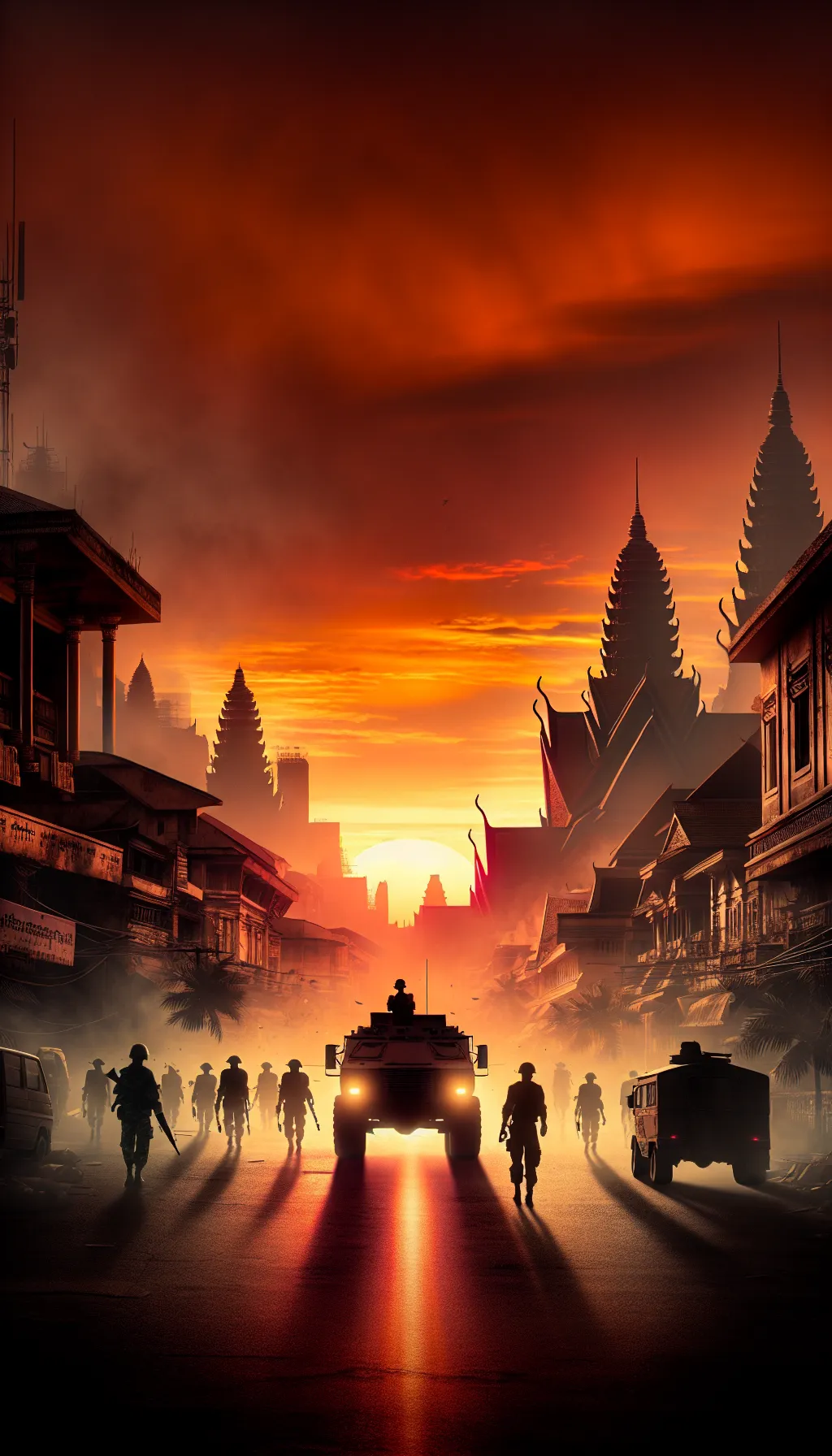Cambodia – The Day Phnom Penh Fell – April 17, 1975
TLDR;
- Event: On April 17, 1975, the Khmer Rouge captured Phnom Penh, marking the beginning of their brutal regime in Cambodia.
- Actions: The Khmer Rouge immediately evacuated the city, forcing its inhabitants into rural labor camps under harsh conditions, targeting the educated and separating families.
- Impact: Over the next four years, an estimated 1.7 million people died due to executions, forced labor, and starvation under the Khmer Rouge’s rule.
- Aftermath: The regime was eventually overthrown by a Vietnamese invasion in 1979, leaving Cambodia to recover from one of the 20th century’s most devastating genocides.
–
Story
The streets of Phnom Penh were tense as the sun rose on April 17, 1975. The once-bustling capital of Cambodia was now a city holding its breath, waiting for the inevitable. The Khmer Rouge, a force that had been waging a guerrilla war for years and whose ideology and brutality were already evident in zones they controlled, was at the gates. As the first tanks rolled in, the city’s fate was sealed.

For years, Cambodia had been caught in the crossfire of the Vietnam War, its people yearning for peace. But the peace that arrived was not the one they had hoped for. The Khmer Rouge, led by the enigmatic Pol Pot, promised a new beginning, a return to an agrarian utopia. But their vision was one of terror.
As the Khmer Rouge soldiers entered Phnom Penh, they were initially welcomed by some civilians who believed the war was over. However, the fear set in almost immediately as the forced evacuations began. The Khmer Rouge did not allow a transition period—they started emptying the city within hours. The city was evacuated, its people forced into the countryside to work in forced agricultural collectives and work sites, not traditional ‘camps.’ The Khmer Rouge called them ‘cooperatives’ while enforcing brutal conditions. Families were torn apart, and the educated were targeted in a brutal campaign to erase the past.
The fall of Phnom Penh marked the start of one of the darkest chapters in Cambodia’s history. Over the next four years, the Khmer Rouge would be responsible for the deaths of an estimated 1.7 million people, a genocide that left deep scars on the nation.
The world watched in horror, but the international response was complicated by Cold War politics. Some countries (including China) supported the Khmer Rouge even after their atrocities became known, while others (like the U.S.) were slow to act due to geopolitical considerations. By the time the Khmer Rouge was pushed out by a Vietnamese invasion in 1979, not an internal uprising, the damage was done. Cambodia was left to pick up the pieces, its people haunted by the ghosts of the past.
–
| Would a different international response have changed Cambodia’s fate? |